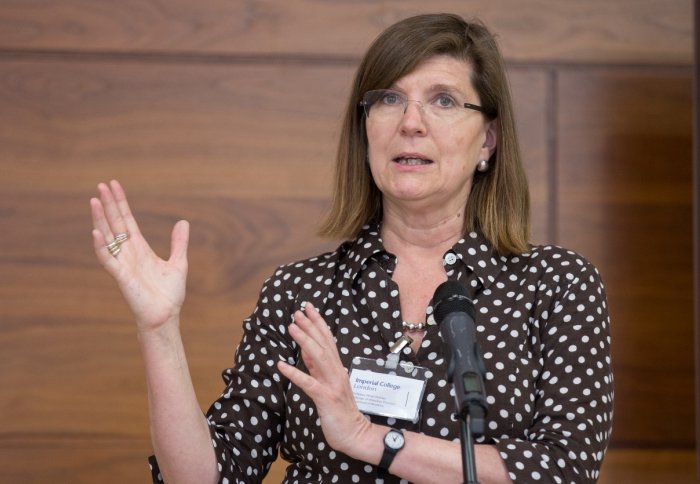Bridging the gaps between the Engineering and Physical Sciences and AMR

Alison Holmes, Co-Investigator
A 2 year programme funded by EPSRC gives an opportunity for a collaboration involving engineering, medicine and life sciences.
The Engineering, Physical, Natural Sciences and Medicine, Bridging Research in Antimicrobial Resistance: Collaboration and Exchange (EMBRACE) aims to provide an environment in which its research fellows develop a unique set of hybrid research skills needed to conduct interdisciplinary antimicrobial resistance (AMR) research.
Research fellows will carry out a range of activities, supported by a dedicated project manager, including organising and running conferences and seminars in AMR, supporting and delivering pump-primed research projects across the College and running funding (sandpit) competitions.
EMBRACE brings together key investigators in Engineering, Physical and Natural Sciences and Medicine within Imperial
College London, to bridge the gaps between disciplines and establish critical mass to perform collaborative research to combat Antimicroabial Resistance. The main objectives are:
1. Creation of a cohort of experienced multidisciplinary researchers to work in the field of AMR
2. Creation of a specific resource to support the programme of activities, break-down barriers and encourage engagement
3. Creation of role models and career paths for junior researchers with an interest in multidisciplinary research
4. Creation of an on-line presence for multidisciplinary AMR Research to facilitate collaboration
5. Engagement of individuals with AMR research and increase in the profile of AMR research
6. To provide a focal point for developing collaborations by offering pump priming funding
7. To deliver projects outcomes which are relevant to AMR and provide track record/pilot data for larger applications
8. To provide learning experiences for the Bridging The Gap fellows
9. To initiate a number of grant funding applications through sandpits
10. To engage with researchers across the College in relation to AMR research and in particular multidisciplinary AMR
research
11. To disseminate the outcomes of the programme and the finding of our fellows
12. To provide opportunities for cross-disciplinary interaction
It is hoped that the experience will create future leaders in interdisciplinary working by bringing these disciplines together to focus on the challenges represented by the threat of resistance.
Article text (excluding photos or graphics) © Imperial College London.
Photos and graphics subject to third party copyright used with permission or © Imperial College London.
Reporter
Rakhee Parmar
Department of Infectious Disease